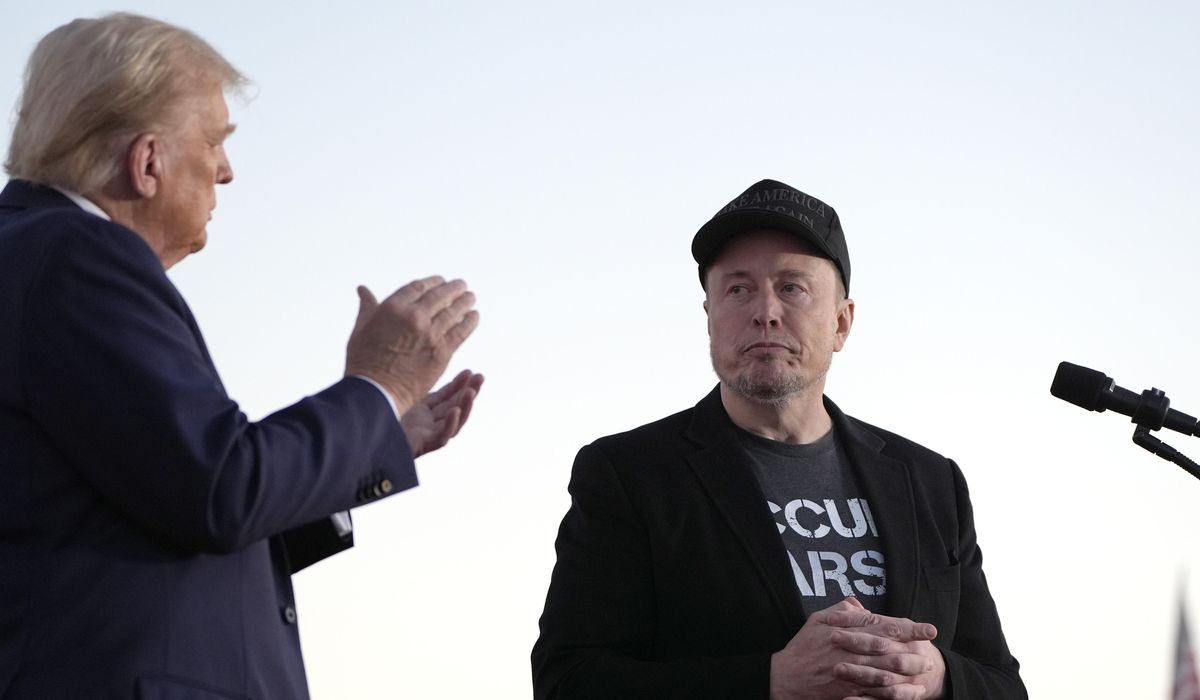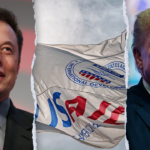Retired Navy captain says DOGE disruptions could improve efficiency, security

As Elon Musk’s unofficial Department of Government Efficiency shakes up U.S. regulatory bodies and foreign aid organizations, one national security expert says the organization’s efforts to streamline operations could make the U.S. safer and more effective.
On the latest episode of the Threat Status Podcast, retired U.S. Navy Capt. Gene Moran argues that DOGE’s initiative to cut regulatory obstacles aligns with what the defense industry needs to streamline the production of essential equipment and strategies.
“I don’t think you would get a single argument from anybody in the major system commands that there are too many people involved in the process,” Mr. Moran said. “And that potentially thousands of positions could be either removed or adjusted in some way to make things more efficient.”
Mr. Moran said that Mr. Musk, a billionaire entrepreneur who leads the cost-cutting agency, brings much-needed energy to Washington, an energy that has enabled the Tesla and SpaceX head to become the richest man on the planet.
“Elon Musk is successful in his business because he takes much more risk. I’m not saying the government is ready to take the kind of risk that SpaceX or Tesla, for example, might take,” Mr. Moran said. “But we are airing way too far in the direction of being 100% certain of something before we proceed. So we need to accept some of the risk that comes with moving faster. And just have fewer people in the approval process.”
However, there are drawbacks to the kind of extreme cost-cutting that Mr. Musk and DOGE are presenting. According to Mr. Moran, in DOGE’s pursuit of efficiency, it may discard useful employees, especially those in the Department of Defense.
“They’re rattling the cage very hard right now in government to shake things up and do things differently, the legality of which I think has yet to be fully flexed. Some of these buyouts that are happening in other agencies, I have said that by June I think [the Defense Department] will look very different,” Mr. Moran explained. “Unfortunately we may lose some very experienced people in the process. Those people who are at a point in their careers where they have a decision to make. ‘Do I want to stay for the really long term? Do I want to be a very senior officer?’”
While President Trump and most Republicans have commended DOGE’s cost-cutting endeavors, Democrats and Mr. Trump’s critics have raised questions about the legality of his actions and his level of authority. They contend that Mr. Musk wields excessive power for an unelected official, and that his directive to reduce bureaucracy could create a conflict of interest as he aims to limit the influence of agencies who regulate and investigate his companies.
DOGE’s efforts to curb inefficiency could have wide ramifications on U.S. production, which Mr. Moran sees as a key area in need of change. In his interview, Mr. Moran called on U.S. defense officials to get away from a simple numbers game if they ever hope to compete with China.
“It’s never been strictly a number count. But if you go by the number count, China is definitely outpacing us. They are able to make decisions and put the full force of government behind those decisions,” he explained. “in the present state, we’re not in a good position. Most, if not all wargame [simulations] that have us in a Taiwan defense scenario describe a win by the U.S. in the end, but a very ugly win that will involve loss of life and loss of capital ship.”
Mr. Moran’s comments about U.S. military readiness echo the assertions made by other defense experts, who say that China is increasingly well prepared for a face-off. Last year, defense analyst Seth Jones of the Center for Strategic and International Studies told Threat Status that China’s defense industry is working on a “wartime footing” while the U.S.’ is operating in a “peacetime environment.”
According to Mr. Jones, while China may have more vessels than the U.S., the real concern is Beijing’s production capacity.
“One Chinese shipyard, like Jiangnan, is larger than all U.S. shipyards combined. The general capacity for China’s ability to build ships is 230 times of the U.S.’,” Mr. Jones said. “If you’re looking at the ability of China to mass produce ships, either surface or subsurface, they have significant capacity.”




